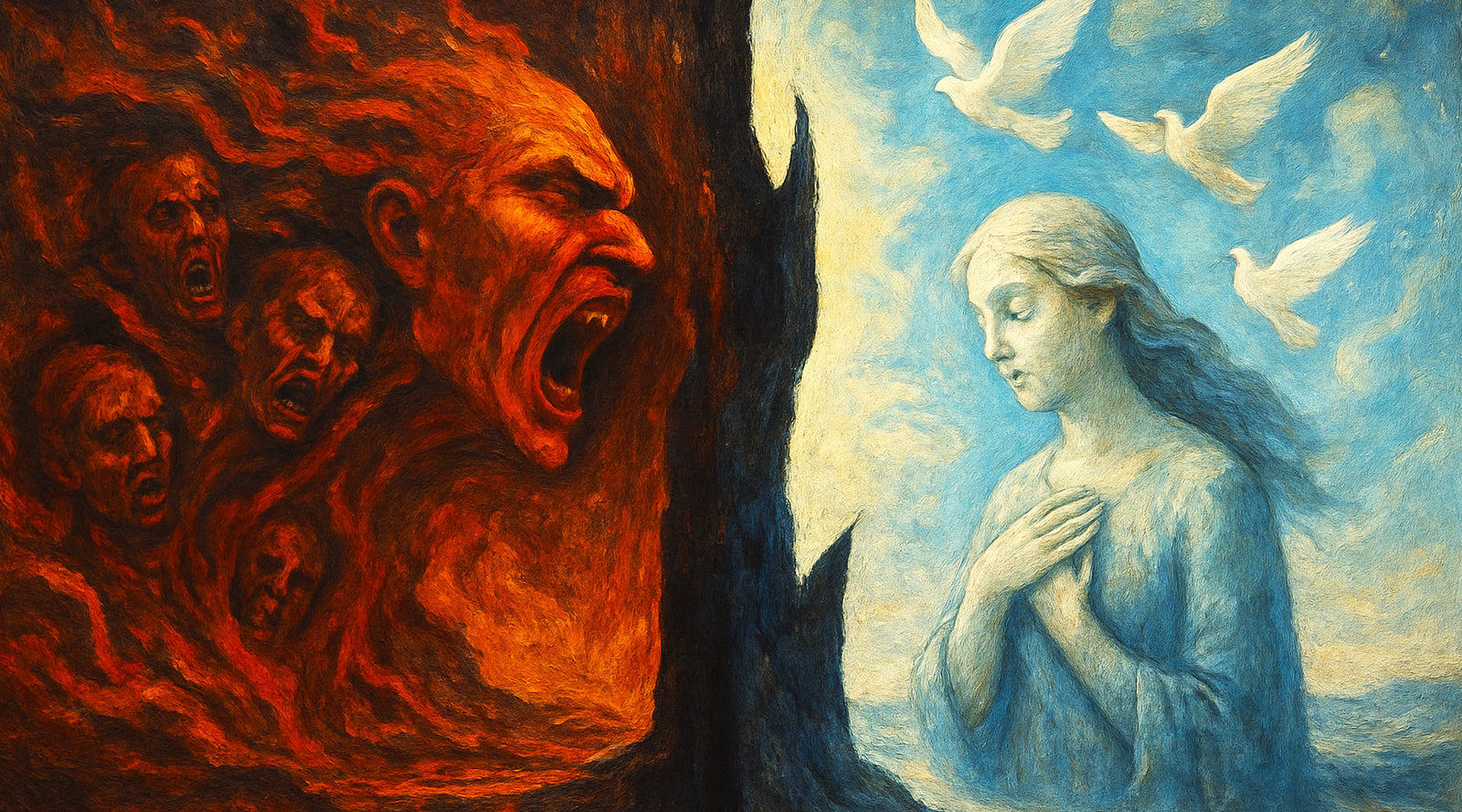Listen to this article
There is no force in this fractured world more revolutionary, more countercultural, more spiritually nuclear than forgiveness. Not karma. Not justice. Not even love by itself. Because forgiveness is the manifestation of love in its rawest, most brutal form—the kind that doesn’t come gift-wrapped in sentimentality but in scars, smoke, and silent resolve.
Forgiveness is the jailbreak of the soul. It is the detonator that blows the locks off our own self-made prisons of rage and resentment. Yet how strange, how stupefying, how stubbornly ironic—that the very key to our emancipation is the thing we resist with white-knuckled fury.
We are a people who clutch to our pain like a miser grips gold. We wear our wounds like war medals. We bathe in bitterness and drink vengeance like vintage wine. Why? Because it feels good. Because justice feels like power. Because rage has rhythm, and revenge has rehearsal.
But forgiveness? Forgiveness is jazz. It's wild, unpredictable, divine. It's the unscripted solo that throws off the pattern and introduces beauty through chaos. It's not what makes sense. It’s what makes miracles.
Jesus Christ didn’t just preach forgiveness. He bled it. From the cross, in the moment of excruciating, state-sanctioned agony, He whispered, "Father, forgive them, for they know not what they do." (Luke 23:34). This wasn’t pity. This was power. The kind of power that splits history in half.
He told Peter not to forgive seven times, but seventy times seven (Matthew 18:22). An idiom not for math but for mercy without measure. He taught us to pray, "Forgive us our trespasses, as we forgive those who trespass against us" (Matthew 6:12), tethering our own absolution to our ability to release others. A divine boomerang.
And He didn’t just say it. He lived it. Ate with His betrayer. Restored Peter after the denial. Forgave the crowd that jeered Him. Jesus didn’t cancel His enemies—He converted them.
Now let’s not get it twisted—Jesus wasn’t soft. He flipped tables, called out vipers, and told the truth even when it hurt. But He never let vengeance sit in the driver's seat. He knew that wrath may win the battle, but only forgiveness wins the war.
The Buddha once said, "Holding onto anger is like drinking poison and expecting the other person to die." A sentiment soaked in eastern wisdom. Stoic philosophers like Seneca and Marcus Aurelius advised detachment from insult, viewing the offender not as a villain, but as someone ignorant, lost, or misguided—deserving not wrath, but reason.
Even in Islam, the Qur'an extols forgiveness as divine: “Let them pardon and overlook. Would you not like that Allah should forgive you?” (Surah An-Nur 24:22). The spiritual traditions of the world seem to harmonize on this one point: Forgiveness is not weakness—it’s wisdom.
But Christianity does something different. It centers forgiveness. It makes it the climax. The cross isn’t just about punishment—it’s about pardon.
And here's where this stops being philosophy and becomes personal:
I spent years as a man with a storm behind his eyes. I was enraged, embittered, breathing brimstone. I plotted revenge—not in cartoonish villain ways, but in quiet, steely rehearsals of what I’d say, how I’d win, how I’d make them feel what I felt. My heart was a furnace. My mind was a dungeon.
I had been betrayed. I had been beaten—physically, emotionally, spiritually. I kept score. I fed the beast. And each day, a little more of my compassion, my creativity, my calm—eroded. Like coastal cliffs against a raging tide.
Until one day, years into my walk with Christ, I sat down alone in my apartment. No music. No Instagram filter. Just me and God. And I did the unthinkable: I forgave. Not performatively. Not symbolically. I declared it. Out loud.
I named every person who had cut me, kicked me, cursed me. I forgave them all. And then I went further—I prayed for them. I asked God not to smite them, not to teach them a lesson, but to bless them. With joy. With peace. With the presence of the Holy Spirit.
And I wept. But not the weeping of weakness. It was release. The soul exhaling for the first time in decades. The chains didn’t just fall off—they disintegrated.
Forgiveness didn’t make me soft. It made me sane. It didn’t erase the memory—but it redefined it. It turned trauma into testimony, pain into poetry.
This world needs forgiveness like a forest needs rain. We're drowning in division, stuck in cycles of outrage, building echo chambers of offense and bitterness. But we were never meant to carry that weight. It corrodes the soul, hardens the arteries of the heart.
Forgiveness is the great protest of the Christian. It says: “I will not be defined by what was done to me. I will not perpetuate the pain. I will interrupt the cycle.”
It's not naive. It's not letting evil off the hook. It’s letting yourself off the hook.
Vengeance is the devil’s dopamine. Forgiveness is the Holy Spirit’s healing.
So why is it so hard? Because forgiveness requires faith. Faith that God sees. Faith that justice will come—not always in this life, but certainly in the next. Faith that your release of wrath doesn’t make you weak, but radiant.
Let it go, not because they deserve it, but because you do.
Forgive, not just as a virtue, but as a weapon. A holy, radiant rebellion against bitterness. A revolution of the Spirit.
In a world drunk on outrage, forgiveness is the ultimate act of sobriety.
And it begins with you.
Let the world rage. Let the culture cancel. But you—child of God—you forgive.
You are not the storm.
You are the calm after it.
Wearing Your Faith Starts Here — Explore Faith Mode’s Bold, Christ-Centered Apparel Now!


